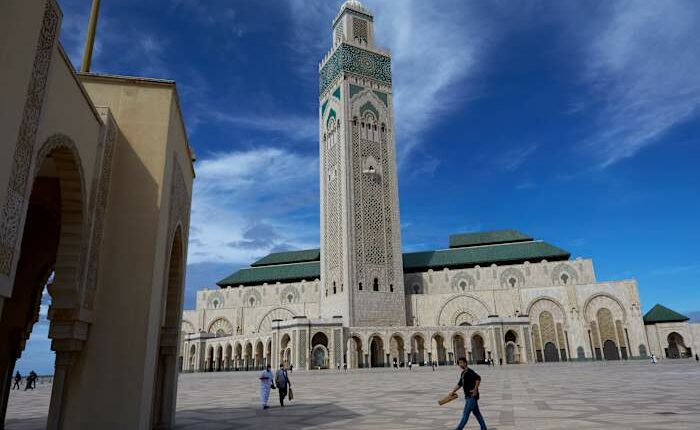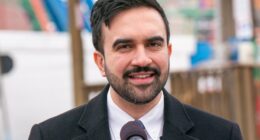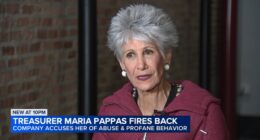Share this @internewscast.com

In the heart of Morocco’s capital, Rabat, a hush fell over the mosque as worshippers, barefoot on the plush red carpet, attentively listened to a sermon. The preacher, perched on a raised pulpit, delivered a message crafted by the government, urging parents to engage their children in the civic life of the community.
This call to action resonated throughout mosques in the kingdom on Friday, following a period of turmoil marked by a significant youth-led uprising. Known as Gen Z 212, these protests called for improved living conditions and opportunities. Although the sermon didn’t directly mention these demonstrations, many perceived it as a subtle governmental nudge to the young activists seeking change.
Traditionally, preachers had the autonomy to choose their sermon topics before leading congregational prayers. However, in recent years, countries like Morocco, Egypt, and Saudi Arabia have begun dictating sermon content. While officials argue this strategy helps prevent extremist rhetoric, critics contend it transforms sermons into mouthpieces for government agendas.
In Rabat, the imam, clad in a traditional white djellaba, addressed the diverse congregation through a microphone, emphasizing the importance of civic engagement. His words aimed at instilling a sense of duty towards the nation, urging the faithful to actively participate in the public sphere.
“One of the most important things we should care about is raising children to participate in the managing of public affairs… and participation in serving the nation, loving the homeland, and watching over its security and stability,” the imam proclaimed, his voice reverberating beyond the mosque’s walls.
He further asserted, “A true citizen is the one who serves his nation and does it well,” drawing on Quranic verses to bolster his message. These imams, employed by the government, deliver uniform sermons across Morocco’s 53,000 mosques, with the proceedings broadcast live on public television, ensuring a unified national message.
The protests stemmed from anger over government spending in sports infrastructure for the 2030 World Cup while public services were perceived as neglected. They were organized on social media platforms like Discord by an anonymous group that rejects any affiliation to political parties and called for toppling a government it views as corrupt.
Government officials said they heard the young activists’ grievances and called on them to engage in dialogue and debate with institutions and in the public sphere. Several new measures, announced in a Cabinet meeting chaired by King Mohammed VI last week, are aimed at boosting youth political participation and job opportunities.
They include a draft bill that would simplify election candidacy requirements for people younger than 35 and provide financial support covering 75% of their campaign fees. Many observers drew a direct link between the measure and the content of Friday’s sermon.
The government also said the 2026 budget draft will allocate a record $15 billion (140 billion dirhams) on health and education, billions more than what was spent this year, will create 27,000 jobs in the two sectors, upgrade 90 hospitals and improve the overall quality of education.
In Friday’s sermon, the imam cited examples of how disciples of Mohammed involved their children in councils to discuss public affairs.
The Imam did not mention the Gen Z protests or the acts of vandalism, deaths and arrests linked to the demonstrations.
The Moroccan Association of Human Rights said Friday that more than 1,500 people are facing prosecution for participating in the gatherings. The appeal court of Agadir, a coastal city 296 miles (477 kilometers) from Rabat, sentenced 33 defendants to a total of 260 years in prison for vandalism, local media reported.
“I sincerely hope the real purpose behind these sermons is to support young people’s participation in public affairs, not to guide or restrict them,” said Soufiane, an 18-year-old college student at a weekend protest in Casablanca. He spoke on condition his last name not be used because of fear of retribution.
He said Friday’s sermons should be backed by real and transparent action, but also noted that they could be a powerful way to positively influence young people to engage in political life.
After the government’s promises and Friday’s sermons, weekend protests drew fewer than expected participants. Only dozens appeared at Saturday’s Casablanca gathering.
“Friday sermons serve as a tool for practicing politics through mosques, whether to defend the state’s positions … or to address other issues,” said Dr. Driss El Ganbouri, a researcher specializing in religious affairs.
“The state adopts a dual discourse toward citizens: one religious, and the other reflected through official decisions,” added El Ganbouri, author of ‘’Islamists Between Religion and Power.”
El Ganbouri said many believe sermons have not kept pace with Morocco’s political and social realities, noting that preachers who stray from official messages can be punished or dismissed.
Copyright 2025 The Associated Press. All rights reserved. This material may not be published, broadcast, rewritten or redistributed without permission.











